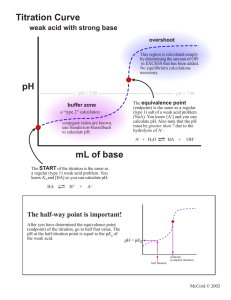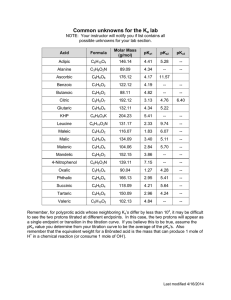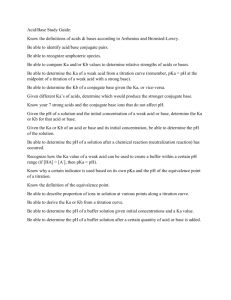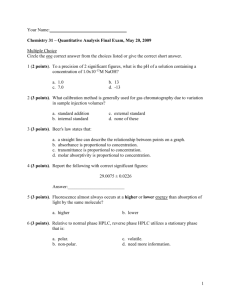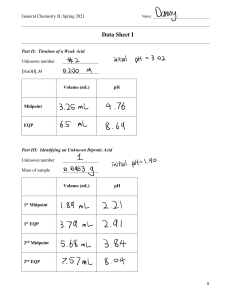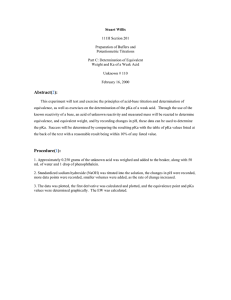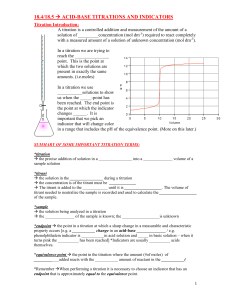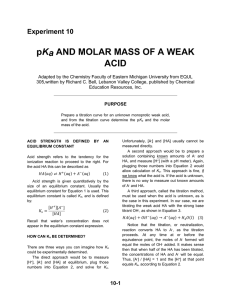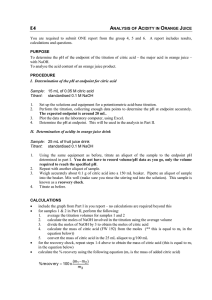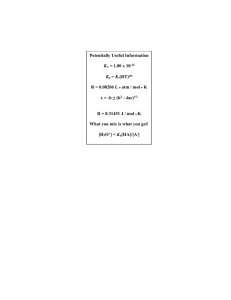Weak Base Titration Curve Explained
advertisement
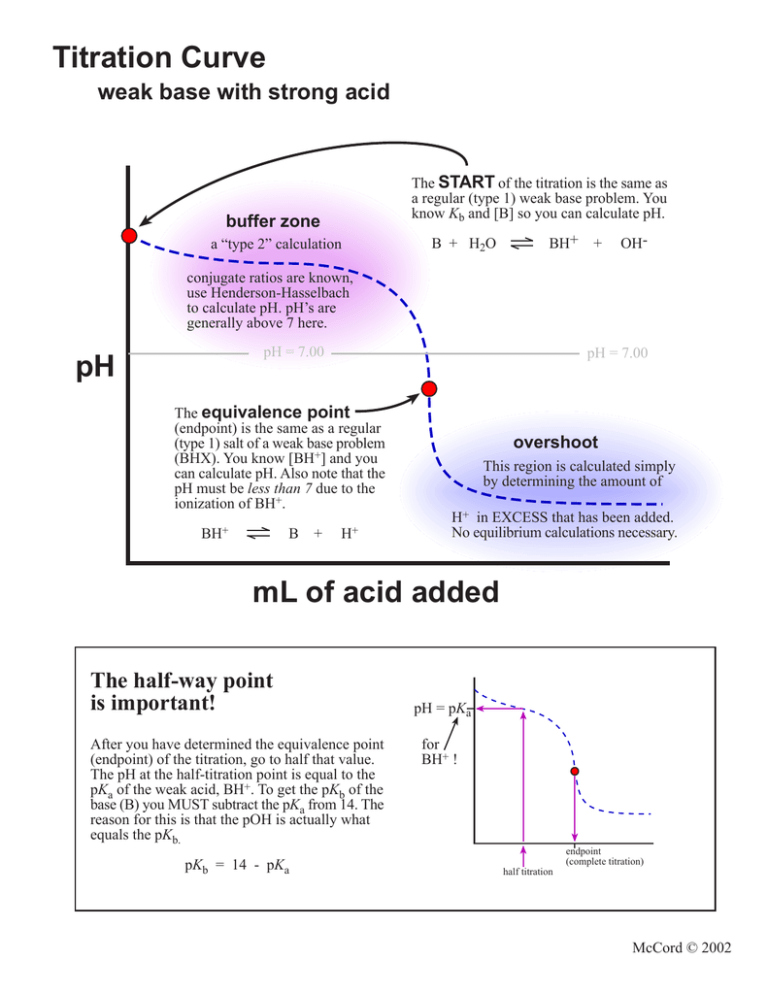
Titration Curve weak base with strong acid The START of the titration is the same as a regular (type 1) weak base problem. You know Kb and [B] so you can calculate pH. buffer zone a “type 2” calculation B + H2O BH+ + OH- conjugate ratios are known, use Henderson-Hasselbach to calculate pH. pH’s are generally above 7 here. pH = 7.00 pH pH = 7.00 The equivalence point (endpoint) is the same as a regular (type 1) salt of a weak base problem (BHX). You know [BH+] and you can calculate pH. Also note that the pH must be less than 7 due to the ionization of BH+. BH+ B + H+ overshoot This region is calculated simply by determining the amount of H+ in EXCESS that has been added. No equilibrium calculations necessary. mL of acid added The half-way point is important! After you have determined the equivalence point (endpoint) of the titration, go to half that value. The pH at the half-titration point is equal to the pKa of the weak acid, BH+. To get the pKb of the base (B) you MUST subtract the pKa from 14. The reason for this is that the pOH is actually what equals the pKb. pKb = 14 - pKa pH = pKa for BH+ ! endpoint (complete titration) half titration McCord © 2002
